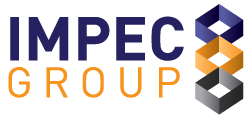Editor’s Note: Simon Davis is the SVP of Workplace Technology at Impec Group. The opinions expressed in this commentary are his own.
The five-day office is dead for most (and hopefully ultimately all) knowledge workers and the winners will be hybrid or (and maybe eventually in the majority) remote-first. I plan on being long retired by then.
Why?
Because happy workers are the most productive and people like choice. I have zero evidence to back this up empirically but prove me wrong.
Vested interest will try and convince you otherwise – look at this timeline of the COVID narrative:
Timeline of COVID-19 Narrative:
|
Statement |
Translation |
|
6 feet office |
You need more space (so more commissions!) |
|
Employees will not be productive. |
Fear tactics to companies hoping they insist on their employee’s return to office.
|
|
Company culture will die! |
Employees working remotely will not feel a part of the culture (so they should return to the office). Bricks and mortar are not a culture – people, mission and purpose are.
|
|
Remote employees will be left behind. |
Let’s make people worried for their jobs so they decide to come back. |
The next statement you will likely see will be…hybrid is a security risk.
I think the most powerful legacy that the pandemic will leave for Corporate Real Estate is that it has empowered the employee to step back and assess what is important.
When the world shut down (just as when you lay on your deathbed), you are not thinking about being at work. You are thinking of family, friends, experiences, and events that you no longer have free and clear access to.
When everything is taken away, you discover what you really miss.
And this is what I was missing…

The pandemic gave me the best gift possible – time with my wife and daughter. A flexible work schedule has given me more memories in the last year than I could have imagined, from swim lessons, her first dance class, and just going to the park with her. Without an office to go to, or a flight to rush to, I can have a much more productive day, both work and family wise.
I can work early, take my daughter swimming, work some more, go to the gym, and then do a little work later. If my childcare falls through? I can adjust my schedule (although that does mean the occasional interloper on a call).
And I am way happier (so according to my survey, 1 out of 1 people believe that hybrid and flexible = happy and productive).
The pandemic also gave 18 months of evidence to every employee who has ever been told “working remotely does not work” that it actually can and does work. What does not work remotely is middle management, and the challenge of building effective managers in a hybrid world may be one of the biggest we face (GitLab’s excellent work not withstanding).
People will still come into offices to socialize, collaborate and be around other humans – it is innate in most of us and it has value. But they will come to the space for specific reasons, not through force. If the space engenders in the individual the optimal environment to work (for them and the task at hand), they will use it.
Other Pluses with Hybrid and Remote-First Work?
- Cheaper for companies that can divest of space
- Travel will be less of an imperative (goodbye Sunday night cross country flights for a one-hour meeting) and companies will encourage space to be used more purposefully
- It has proven that we can all impact the environment positively
- Recruiting for hybrid opens a world (literally) of new talent
- If your employees love working 60 hours a week in a cubicle, they can also do that
So where are the (legitimate) negatives for the employee or the employer?
If you trust, provision, and empower your employees, they will be happier, more committed, work smarter (not longer – the misnomer that productivity = hours work really needs to be vanquished as well) and stay longer.
If you do not embrace hybrid work, someone else will – try Salesforce, Dropbox, Okta, Twitter, Facebook, Atlassian or even Impec Group!!



